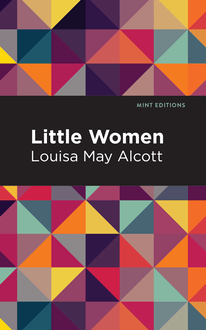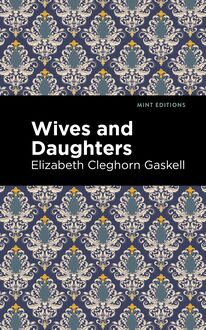-
 Univers
Univers
-
 Ebooks
Ebooks
-
 Livres audio
Livres audio
-
 Presse
Presse
-
 Podcasts
Podcasts
-
 BD
BD
-
 Documents
Documents
-
- Cours
- Révisions
- Ressources pédagogiques
- Sciences de l’éducation
- Manuels scolaires
- Langues
- Travaux de classe
- Annales de BEP
- Etudes supérieures
- Maternelle et primaire
- Fiches de lecture
- Orientation scolaire
- Méthodologie
- Corrigés de devoir
- Annales d’examens et concours
- Annales du bac
- Annales du brevet
- Rapports de stage
La lecture à portée de main
Vous pourrez modifier la taille du texte de cet ouvrage
Découvre YouScribe en t'inscrivant gratuitement
Je m'inscrisDécouvre YouScribe en t'inscrivant gratuitement
Je m'inscrisEn savoir plus
Vous pourrez modifier la taille du texte de cet ouvrage
En savoir plus

Description
Are Parents People? (1924) is a collection of stories by Alice Duer Miller. Inspired by her work as an activist for women’s suffrage, Miller explores themes of independence, agency, and female desire while illuminating the subject of divorce. Her work was adapted into a 1925 comedy film starring Betty Bronson, Florence Vidor, and Adolphe Menjou. “There they were—her mother looking down at her so calmly from the gallery and her father waiting so confidently for her below, each unaware of the other's presence. What in thunder was she going to do?” As the chairman of her school’s self-government committee, Lita Hazlitt is a young woman committed to order. Seeing her parents in the same room for the first time since their acrimonious divorce, she longs for them to reunite so that their family can return to its former state. When her attempts at reconciliation fall on deaf ears, Lita begins to act out, threatening her parents with scandal by spending time with an older, married man. In each of its nine stories, Are Parents People? explores the politics of divorce in middle to upper class American families. Witty and heartbreaking, Miller’s work is an utterly human look at the shortcomings of marriage in modern life. With a beautifully designed cover and professionally typeset manuscript, this edition of Alice Duer Miller’s Are Parents People? is a classic of American literature reimagined for modern readers.
Sujets
Informations
| Publié par | Mint Editions |
| Date de parution | 28 septembre 2021 |
| Nombre de lectures | 0 |
| EAN13 | 9781513210803 |
| Langue | English |
| Poids de l'ouvrage | 3 Mo |
Informations légales : prix de location à la page 0,0500€. Cette information est donnée uniquement à titre indicatif conformément à la législation en vigueur.
Extrait
Are Parents People?
Alice Duer Miller
Are Parents People? was first published in 1924.
This edition published by Mint Editions 2021.
ISBN 9781513212005 | E-ISBN 9781513210803
Published by Mint Editions®
minteditionbooks.com
Publishing Director: Jennifer Newens
Design & Production: Rachel Lopez Metzger
Project Manager: Micaela Clark
Typesetting: Westchester Publishing Services
C ONTENTS A RE P ARENTS P EOPLE ? T HE A MERICAN H USBAND D EVOTED W OMEN T HE R ETURN TO N ORMALCY T HE R ED C ARPET T HE W IDOW’S M IGHT W HOSE P ETARD W AS I T ? T HE N EW S TOICS W ORSE T HAN M ARRIED
A RE P ARENTS P EOPLE ?
I
T HE GIRLS MARCHED INTO CHAPEL singing Jerusalem the Golden. Some of the voices were shrill and piping, and some were clear and sweet; but all had that peculiar young freshness which always makes old hearts ache, and which now drew tears to the eyes of many visiting parents looking down from the gallery, and trying not to crane their necks conspicuously when their own offspring appeared in the aisle below.
On Sundays the whole school came out in blue serge and black velvet tam-o’-shanters. The little girls marched first—some as young as eleven years—and as they came from the main school buildings and marched up the long aisle they were holding the high notes, “Jerusalem the golden,” and their voices sounded like young birds’, before the older girls came crashing in with the next line, “With milk and honey blest.” They marched quickly—it was a tradition of the school—divided to right and left, and filed into their appointed places.
Last of all came the tall senior president, and beside her a little figure that hardly reached her shoulder, and seemed as if one of the younger children were out of place; yet this was an important figure in the life of the school—Lita Hazlitt, the chairman of the self-government committee.
Her face was almost round except for a small point that was her chin; her hair—short curls, not ringlets—curved up on her black velvet tam, and was blond, but a dusky blond. There was something alert, almost naughty in her expression, although at the moment this was mitigated by an air of discretion hardly avoidable by the chairman of the self-government committee in church.
In this, her last year at Elbridge Hall, she had come to love the chapel. Its gray stone and dark narrow windows of blue or amethyst, the organ and the voices, gave her a sense of peace almost mystic—a mood she could never have attained unaided, for hers was a nature essentially practical. Like most practical people, she was kind. It was so easy for Lita to see what was needed—to do a problem in geometry or mend a typewriter or knit a sweater—that she was always doing such things for her friends, not so much from unselfishness as from sheer competence.
The seniors sat in the carved stalls against the wall, and Lita liked to rest her hand on the rounded head of a dragon which made the arm of her chair. It had a polished surface and the knobs of the ears fitted into her fingers.
“Dearly beloved brethren, the Scripture moveth us, in sundry places, to acknowledge and confess—”
Lita loved the words of the service, and she noted that part of their beauty was the needless doubling of words—dissemble and cloak—assemble and meet together—requisite and necessary. Yet Miss Fraser, who taught English at Elbridge, would call that tautology in a theme… She sank on her knees, burying her small nose in her hands for the general confession.
As they rose from their knees and the choir broke out into O Come, let us sing unto the Lord, Lita allowed herself one glance at the gallery, where her lovely mother was just rising, slim and erect, with a bearing polite rather than devout. Lita could see one immaculate gray glove holding her prayerbook. She was a beautifully dressed person. The whole school had an orgy of retrimming hats and remaking dresses after Mrs. Hazlitt had spent a Sunday at Elbridge. She was as blond as her daughter, except that somehow in the transmission of the family coloring she had acquired a pair of enormous black eyes from some contradictory ancestor. Even across the chapel Lita could see the dark splotches that were her mother’s eyes. It was great fun—the Sundays that Mrs. Hazlitt came to the school, and yet Lita was always a little nervous. Her mother said anything that came into her head—simply anything, commenting on teachers and making fun of rules. The girls loved it, of course, but sometimes— The First Lesson had begun.
The service went on. It was not until the Second Lesson was being read that Lita, glancing idly toward the ante-chapel, saw that a terrible thing had happened: Her father had arrived too—unexpected and unannounced. He was standing there under the gallery, his hat and stick and gloves all held in one hand, and his mouth just not smiling as he at last contrived to meet her eyes. There they were—her mother looking down at her so calmly from the gallery and her father waiting so confidently for her below, each unaware of the other’s presence. What in thunder was she going to do?
Their divorce had taken place a great many years before, when Lita was so young that her mother was not much more important to her than her nurse, and her father very much less so. She was accustomed to the idea of their divorce; but she did wish they were divorced as Aurelia’s parents were—quite amicably, even meeting now and then to talk over questions of Aurelia’s welfare. Or the way Carrie Waldron’s were—each remarried happily to someone else, so that Carrie had two amusing sets of half brothers and sisters growing up in different parts of the country. But Lita was aware of a constrained bitterness, a repressed hatred between her parents. When they said, “Perhaps your father does not quite take in, my dear—” or “I would not interfere with any plan of your mother’s; but I must say—” Lita was conscious of a poisoned miasma that seemed to rise from old battlegrounds.
And now, in a few minutes, these two people who had not spoken for thirteen years would come face to face in the cheerful group of parents which every Sunday brought to the school. The few minutes after the service when everyone stood about on the grass outside the church and chatted was a time of public friendliness between three inharmonious classes—parents, teachers and pupils; and there these two dear foes of hers would be, each waiting so confidently to claim her undivided attention. She must prevent it.
She had the sermon to think it out, and for the first time in her life she hoped it would be a long sermon. The preacher, a fine-looking old missionary bishop, with a long upper lip like a lawyer, and a deep-set eye like a fanatic, was going up into the pulpit, turning on the reading light, shaking back the fine frills of his episcopal sleeves.
“My text,” he was saying, “will be taken from the eleventh chapter of Isaiah, the sixth verse: ‘The wolf also shall dwell with the lamb, and the leopard shall lie down with the kid; and the calf and the young lion and the fatling together; and a little child shall lead them.’ The eleventh chapter of Isaiah, the sixth verse.”
Well, the text was not inappropriate, Lita thought; but she had no intention of listening. The situation, besides its practical difficulties, brought all the emotion of her childhood’s worries and confusions. One of her very earliest recollections went back to a time when her parents still loved each other. She and her mother had been sitting on the floor playing with paper dolls, and suddenly her father had appeared unexpectedly in the doorway—returned ahead of time from a journey. What Lita specially remembered was the way her mother sprang up in one single long motion and flung herself into his arms, and how they had clung together and gone out of the room without a word to her, leaving her conscious, even at four, that she was forgotten. Presently her mother had sent her nurse, Margaret, to finish the game; but the game was already over. Margaret was desirable when one was tired or hungry or sleepy, but absolutely useless at games of the imagination.
After that Lita could just remember days when she would see her mother crying—peculiar conduct for a grown-up person, since grown-up people were never naughty or afraid and could do anything they wanted to do, and did. It shocked Lita to see her mother cry; it was contrary to the plan of the universe. And then, soon after this, her father, as far as she was concerned, ceased to be; and it must be owned she did not greatly miss him.
He ceased to be as a visible presence; but at immensely long intervals—that is to say, once a year, at Christmas—magical presents arrived for her, which she knew came from him. The first was the largest doll she had ever seen. It came from Paris and brought a trousseau in a French trunk. It was an incredible delight. She dreamed about it at night, and could hardly believe each morning on waking that it was reality. The only mitigation of her delight was that her mother did not admire the doll. She said it had an ugly, stary face. Lita, beginning the stupendous task of writing a letter of thanks, with a lead pencil on ruled paper, wrote, “Dear Father: Mother thinks the doll has a stary face, but I love her—” Only Margaret said that wouldn’t do, and she had to begin all over again, her round, cramped hand pressing on the pencil until her nails were white.
When she was eight a gold bracelet arrived, set with red stones. This time her mother was even more outspoken. She said to Aunt Minnie, “Of course, she bought it! Isn’t it just what you’d expect?” Lita guessed that “she” meant her father’s new wife, for she knew vaguely that he had married again and was living abroad. She herself thought the bracelet beautiful; but it was put away, and she was never allowed to wear it. And now, only a little while before, she had seen it in an old jewelry case of her mother’s and had been su
-
 Univers
Univers
-
 Ebooks
Ebooks
-
 Livres audio
Livres audio
-
 Presse
Presse
-
 Podcasts
Podcasts
-
 BD
BD
-
 Documents
Documents
-
Jeunesse
-
Littérature
-
Ressources professionnelles
-
Santé et bien-être
-
Savoirs
-
Education
-
Loisirs et hobbies
-
Art, musique et cinéma
-
Actualité et débat de société
-
Jeunesse
-
Littérature
-
Ressources professionnelles
-
Santé et bien-être
-
Savoirs
-
Education
-
Loisirs et hobbies
-
Art, musique et cinéma
-
Actualité et débat de société
-
Actualités
-
Lifestyle
-
Presse jeunesse
-
Presse professionnelle
-
Pratique
-
Presse sportive
-
Presse internationale
-
Culture & Médias
-
Action et Aventures
-
Science-fiction et Fantasy
-
Société
-
Jeunesse
-
Littérature
-
Ressources professionnelles
-
Santé et bien-être
-
Savoirs
-
Education
-
Loisirs et hobbies
-
Art, musique et cinéma
-
Actualité et débat de société
- Cours
- Révisions
- Ressources pédagogiques
- Sciences de l’éducation
- Manuels scolaires
- Langues
- Travaux de classe
- Annales de BEP
- Etudes supérieures
- Maternelle et primaire
- Fiches de lecture
- Orientation scolaire
- Méthodologie
- Corrigés de devoir
- Annales d’examens et concours
- Annales du bac
- Annales du brevet
- Rapports de stage















